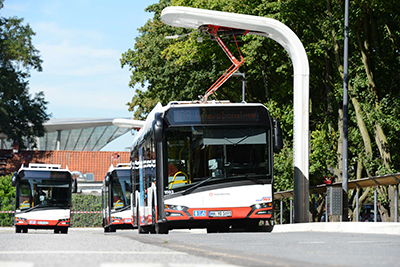AMALGAMATED Bus Industries (ABI) has complemented government efforts to alleviate transport woes through an intiative that will see at east 500 buses being assembled locally in the next 12 months.
The bus operating organisation entered a synergy with a top manufacturing entity Quest Motors and signed an agreement at a local hotel Wednesday.
The project is set to kick off in July and expected to create 10 000 jobs.
Clauses of the agreement states that the parties will procure kits that will be assembled locally.
Transport and Infrastructural Development Deputy Minister Mike Madiro, who was guest of honour at the signing ceremony, commended the two entities saying their agreement will give impetus to Government’s economic blueprint, National Development Strategy 1 aimed at achieving Vision 2030 of an upper middle income economy.
Madiro said the agreement resonates with the Second Republic’s thrust of having a private sector-led economy, in which with the Government provides an enabling environment championing the ease of doing business. He said government was committed to improve the road network and has set in motion a road rehabilitation programme.
“The majority of our people are in the rural areas, which is 70 percent, but it is less attractive in terms of road network,” he said.
“That is why the President has embarked on road rehabilitation so that you use better roads, so the President is on it. ‘‘The vision of the New Dispensation is to move away from the public sector to a private sector-led economy.
“So it is you the private sector who should be leading the drive.” Madiro further waxed lyrical over the agreement for employment creation for locals. “We are our own liberators. The economy was dominated by our erstwhile oppressors.
“So it is important that we are competitive given the modernity of our society. We are in a global village,” said Madiro.
ABI chief executive , Fungai Makoni described the agreement as an epoch.
“The bus industry has answered Government’s call for local manufacturing of products. It is a milestone that will save about 50 percent of foreign currency that we are using in importing buses.
“There will also be job creation up to downstream industry. Currently, the bus industry employs more than 21 000 people and this figure is expected to rise,” he said.
He implored Government to revive the steel industry saying it plays a pivotal role in the bus industry.
The organisation ‘s executive chairperson, Kurauone Sibanda said under the agreement, their organisation will import bus kits that would be delivered to bus assemblers in Zimbabwe who will then manufacture the buses.
“Our initial plan is to have at least 500 buses for the local market. We will also manufacture buses for the region. In the long run it will reduce the demand for foreign currency and downstream industry will benefit,” said Sibanda.
Previously , the industry survived on imports and this caused a strain on access to foreign currency and bled the fiscus.
